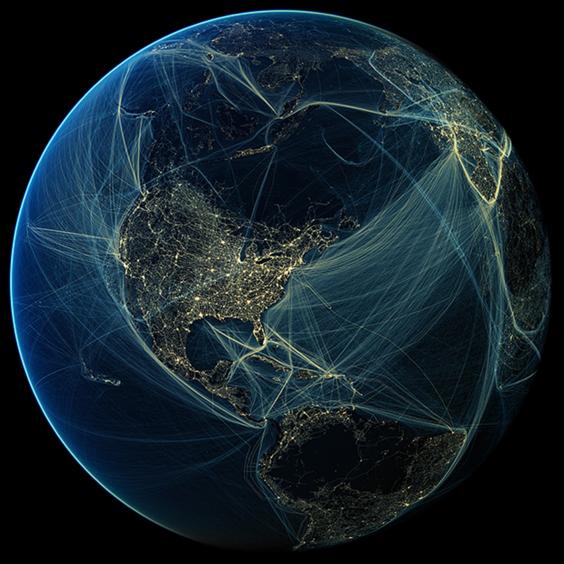Blade Runner (1982)
One of the first films I watched for this project was Ridley Scott's "Blade Runner," starring Harrison Ford.
The movie is based upon the story "Do Androids Dream of Electric Sheep?" by Philip K. Dick, a famous science fiction writer.
Set in the year 2019, the advancement of technology is far beyond what it was in the 80s, and a fair bit further than I think we can expect to be in just two years. Technology exists everywhere. Cars can fly, cities sprawl endlessly and the night is consistently lit up by neon signs. Years earlier, humans developed advanced robots, dubbed Replicants.
The Replicants are incredibly similar to humans. Visually, they're indistinguishable. They have just as much intelligence, and much greater speed and strength. Due to these abilities, Replicants were used as slave labor as humans colonized other worlds. Well, the intelligence became an issue, and the Replicants soon decided that they were self determining beings just like their creators, and rebelled.
Following this rebellion, Replicants were banned from the planet Earth. Any who returned would be hunted down by a special police force known as the Blade Runners. The job of the Blade Runner is to figure out who the Replicants are--this is typically done by a test involving a series of questions, as seen in this clip:
As the clip shows, the Replicants have shorter life spans than humans do. Rachel, the woman under interrogation, is a new sort of Replicant--one with implanted memories, to help her cope with her short life span. The test she endures is supposed to identify the Replicants much quicker. The machine Deckard uses looks at their pupils, to see how they respond involuntarily to intense questioning--a normal human would have their pupils enlarge when they told a lie. Normal humans delay their responses, while Replicants, because they are computers, are able to answer immediately.
Four fugitive Replicants arrive to Earth, and Deckard must hunt them down. Their goal is to find a way to extend their lives. Since they won't go quietly, Deckard can't use his normal interrogation tactics to hunt them down.
Here's where the philosophical crisis comes in: If it looks like a human and acts like a human, how the heck do you tell that it's not? The Replicants have to fake possessing empathy in order to blend in. The Blade Runners, on the other hand, must suppress their empathy and their morality in order to hunt down and kill the Replicants.
Following the climactic battles, we discover some of the motivation that the Replicant gang had in returning to Earth:
Roy, the Replicant leader, explains to Deckard that he's seen magnificent things--great things. But because of his short life span, those memories that he was able to create will be lost forever. He may not have had a chance to pass them down, and desperately desired more time so that he could be human.
So what does this have to do with the Anthropocene?
Well, the level of technology required to create the Replicants is beyond the robotics and artificial intelligence that we possess now, but it may not be far off. What humans in this story achieved, was the creation of artificial life, almost indistinguishable from their own. This forces the question: At what point does pretending to be human make you human? At what point does repressing humanity turn you into something else?
Maybe the broader question is about what it means to be human. What rights do we give our technology? Is technology deserving of rights and protections just like we are?
As our own technology, here in reality, continues to advance, these are questions we will have to face. If a robot is as smart as we are, and can develop emotions...who are we to say they can't have nice things?

No comments:
Post a Comment